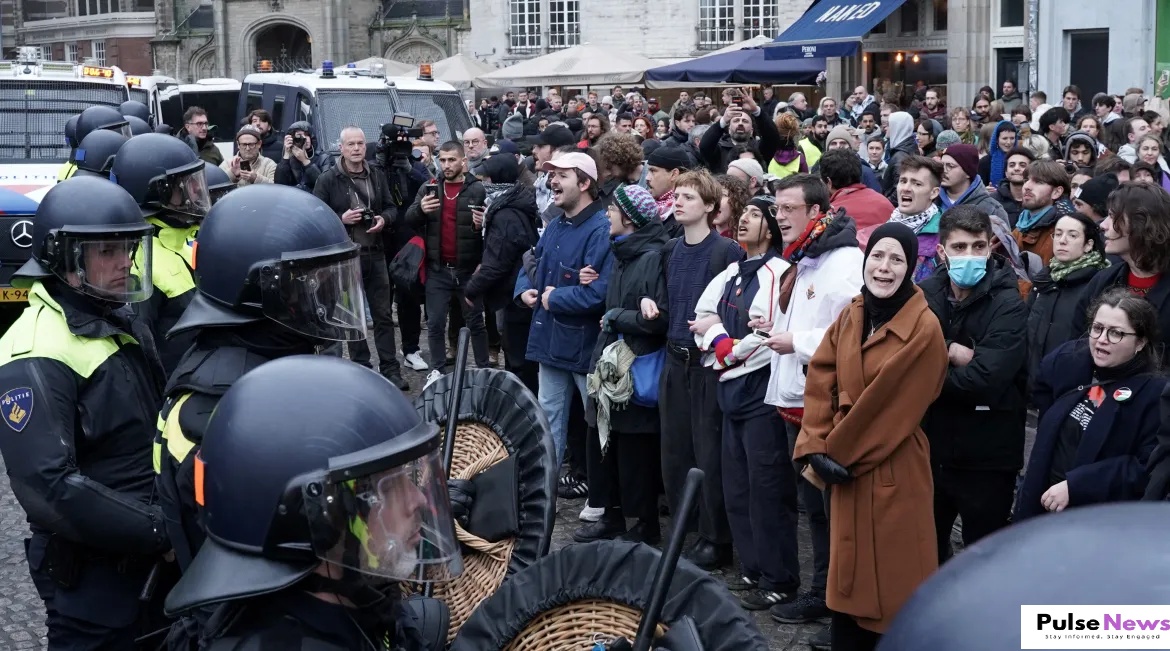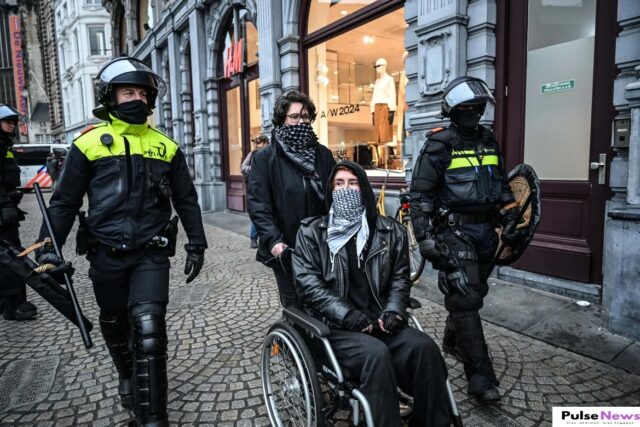Across the globe, thousands of demonstrators have gathered in response to Israel’s ongoing military offensive in Gaza and Lebanon. Protests have erupted in cities around the world, with participants expressing solidarity with the people of Palestine and Lebanon, and condemning what they describe as “genocide” and “occupation.” The escalating violence, which began with an Israeli military response to a deadly attack led by Hamas in October 2023, has resulted in a massive loss of life in Gaza, with global calls for an immediate end to hostilities.
Global Outcry Over Israeli Actions in Gaza and Lebanon
Since the offensive began, international concern has mounted over the high death toll and the impact on civilians. Over 41,000 Palestinians have reportedly been killed in Gaza, with further casualties reported in Lebanon. The United Nations and various human rights organizations have raised alarms about potential war crimes, particularly in Gaza, where densely populated civilian areas have been heavily impacted.

Protests began gaining momentum following the death of Hezbollah leader Hassan Nasrallah, which prompted expressions of outrage and grief across Lebanon. These demonstrations have since grown, with an increasing number of countries joining the calls for Israel to halt its operations.
Protests in Europe Stockholm and Helsinki Lead the Charge
In Stockholm, Sweden, hundreds of protesters marched from Odenplan to the Israeli Embassy, waving Palestinian and Lebanese flags and chanting slogans like “Hands off Lebanon” and “Free Palestine.” Swedish artist and activist Samuel Girma addressed the crowd, calling Israel “a terrorist state” and advocating for a trade boycott in response to what he described as “terror attacks on Beirut and Lebanon.”
Dr. Uno Horn, a Swedish physician who spoke at the protest, criticized Israel’s actions, emphasizing the impact on civilians: “They are killing children. It’s not war; it’s a terror attack.” In neighboring Finland, demonstrators gathered in Helsinki with similar demands, urging the Finnish government to call for an end to Israeli actions in Lebanon and Gaza.
Demonstrations Across France Paris Demands Justice for Palestinians
Paris also witnessed significant demonstrations, where hundreds gathered near the historic Innocents Fountain. The protesters held banners bearing messages such as “End the genocide in Gaza” and “Boycott Israel.” Many attendees wore keffiyehs, a symbol of Palestinian solidarity, and carried images of Shireen Abu Akleh, a Palestinian journalist killed in 2022, whom many attendees see as a symbol of Palestinian resistance.
The Paris protests were notable for their diversity, drawing participants from various social, political, and religious backgrounds united in their opposition to the violence in Gaza. A coalition of human rights organizations in France has since called on the French government to take a firm stand against the escalating violence and to push for immediate international intervention.
Voices from Istanbul Turkish Protesters March in Solidarity with Lebanon and Gaza
In Istanbul, Turkey, the Palestinian Action Committee organized a massive demonstration, with thousands marching from Levent Metro Station to the Israeli Consulate. Chants of “Murderer Israel, get out of Palestine” and “Murderer Israel, get out of Lebanon” echoed through the streets, while demonstrators carried a large Palestinian flag alongside a banner that read: “Genocidal Israel will be held accountable, the resisting peoples of Palestine and Lebanon will win.”
Turkey’s support for the Palestinian cause has long been significant, with government officials regularly condemning Israeli actions. The protests in Istanbul reflected this sentiment, with demands that Turkish authorities pressure international bodies to respond more forcefully against Israel.
South Asia Joins the Protest Calls for Action in Indian-administered Kashmir
In Indian-administered Kashmir, a region itself affected by decades of conflict, protests were held in solidarity with Lebanon and Gaza. Demonstrators condemned Israel’s killing of Hezbollah’s Nasrallah and encouraged the Indian government to halt arms trade with Israel. Kashmiris, familiar with issues of occupation and military conflict, have shown consistent solidarity with Palestinians, with activists calling for a unified response to Israeli actions in Gaza and Lebanon.
Appeals for Global Action and Accountability
Protesters around the world have called on their governments to end arms deals with Israel and to denounce the ongoing violence. Many believe that a swift response from the international community is essential to avoid further escalation and to address the root causes of the conflict.
Earlier this month, the United Nations General Assembly passed a resolution urging Israel to end its occupation of Palestinian territories, a resolution supported by the International Court of Justice, which recently ruled that Israel’s presence in these areas is unlawful. The demonstrations echo these sentiments, emphasizing the demand for an end to what they view as an extended occupation and systemic injustices against Palestinians.
The Role of Social Media and International Solidarity
Social media has played a pivotal role in amplifying the voices of protesters and bringing global attention to the situation in Gaza and Lebanon. Hashtags like #FreePalestine, #EndtheOccupation, and #StandWithLebanon have trended across platforms, enabling protesters to organize quickly and share updates from events worldwide. The ease of access to information through social media has also meant that graphic images and videos from Gaza and Lebanon have reached audiences almost instantaneously, fueling global outrage and encouraging further participation in protests.
Analysis of the Ongoing Crisis and Future Prospects
The latest protests indicate a growing frustration with the perceived lack of international accountability for Israel’s military actions. Many countries continue to maintain trade and defense relationships with Israel, which has prompted calls for boycotts and sanctions.
The protests reflect a global solidarity movement that, for many, is as much about human rights and justice as it is about political solutions. Observers are now keenly watching the responses of governments worldwide, and whether pressure from the international community will lead to a cessation of hostilities or a shift in Israeli policy regarding Gaza and Lebanon.
Moving Forward A Global Call for Peace and Resolution
The protests around the world underscore the urgent need for a peaceful resolution to the Israeli-Palestinian conflict and a reconsideration of Israeli policies in Lebanon. International organizations, including the United Nations, continue to call for dialogue and restraint from all sides, though many believe more robust action is required to prevent further loss of life.

As more people join the protests, it’s clear that the international community is watching closely and that calls for an end to the violence will only grow louder. Whether these protests can influence policy change remains uncertain, but they have undeniably highlighted the global demand for justice and human rights for the people of Gaza and Lebanon.












ceasefire!